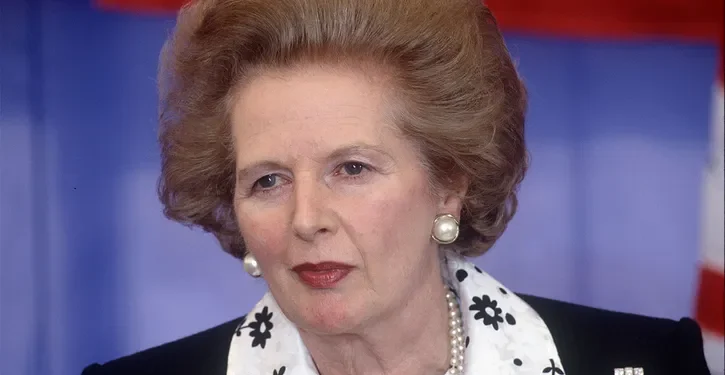Margaret Thatcher, often referred to as the Iron Lady, was a towering figure in British politics whose impact reverberated far beyond the shores of the United Kingdom. Born on October 13, 1925, in Grantham, England, Thatcher rose to prominence as the leader of the Conservative Party and served as Prime Minister from 1979 to 1990, making her the longest-serving British prime minister of the 20th century.
Thatcher’s tenure as Prime Minister was marked by a commitment to conservative economic policies and a staunch opposition to socialism. She believed in the power of free markets and limited government intervention, advocating for privatization, deregulation, and fiscal discipline. This approach, known as Thatcherism, aimed to revitalize the British economy, which was struggling with high inflation, unemployment, and industrial unrest.
One of Thatcher’s most significant achievements was her role in transforming the British economy. She implemented sweeping reforms that curbed the power of trade unions, privatized state-owned industries, and reduced government spending. These measures led to a period of economic growth and prosperity, earning her praise from supporters and criticism from opponents who argued that her policies exacerbated social inequality.
Thatcher’s foreign policy was characterized by a close alliance with the United States, particularly during the presidency of Ronald Reagan. Together, they stood firm against the Soviet Union during the Cold War, advocating for a robust defense posture and supporting anti-communist movements around the world. Thatcher’s strong leadership on the international stage earned her respect and admiration, but also attracted controversy, especially regarding her handling of conflicts such as the Falklands War.
However, Thatcher’s time in office was not without its challenges and controversies. Her uncompromising style and divisive policies alienated many within her own party and across the political spectrum. The implementation of austerity measures and the restructuring of industries led to widespread social upheaval, with communities devastated by job losses and economic hardship. Thatcher’s government faced protests and strikes, and she was often portrayed as a polarizing figure, admired by some as a visionary leader and reviled by others as a ruthless ideologue.
In 1990, Thatcher’s leadership came to an abrupt end when she was forced to resign as Prime Minister following a revolt within her own party. Despite her departure from frontline politics, Thatcher’s legacy endures. She remains a figure of admiration and controversy, remembered for her determination, resilience, and unwavering commitment to her principles. Whether celebrated as a champion of free-market capitalism or criticized for exacerbating social divisions, Margaret Thatcher undeniably left an indelible mark on British politics and society, shaping the course of the nation for decades to come.
newshub



Recent Comments